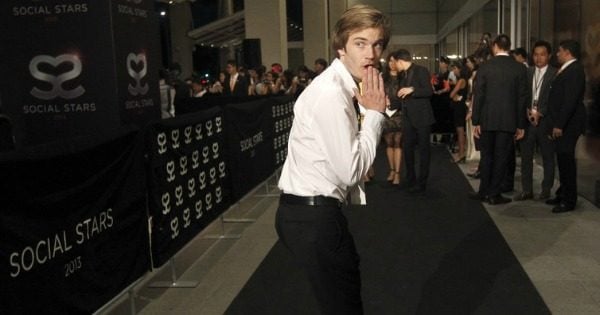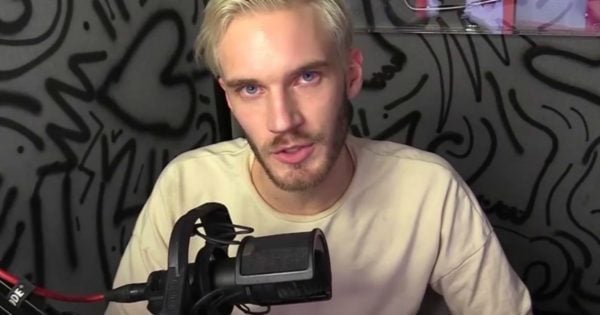
By Steven Roberts, Monash University and Marcus Maloney, Monash University.
PewDiePie is the username of the world’s most famous YouTube video blogger, 27-year-old Swede, Felix Kjellberg.
PewDiePie’s vlogs, centred on his comedic video game commentaries, attract more than 53 million (mostly young) subscribers – more than any other YouTube channel. He was ranked by Forbes in December as the world’s highest paid YouTuber, with an income of US$15m in 2016.
But on January 11, a PewDiePie vlog showed two South Asian men holding up a placard proclaiming, “DEATH TO ALL JEWS”. The pair danced and laughed while on a separate screen, Kjellberg, who had reportedly paid the men to hold up the sign via the freelance employment site Fiverr, feigned disbelief.
“I’m not anti-Semitic or whatever it’s called,” he said as he watched. “It was a funny meme, and I didn’t think it would work.”
After The Wall Street Journal reported on the video – a month later – there was an outcry on social media. Soon after, Disney and YouTube severed their business ties with PewDiePie. In a mea culpa last week, he suggested it had been a piece of ironic performance art aimed at demonstrating the kinds of absurd things you could pay people to do online.
“I know I offended people and I admit that the joke went too far,” he said. He also distanced himself from hate speech and acknowledged that he was a rookie comedian.
Watch: PewDiePie’s response to the criticism. (Post continues after video.)
Not intending to offend does not mean “jokes” are without consequences, but it’s important to draw this distinction: PewDiePie’s stunt was clearly a dubious attempt at provocative humour rather than a call to violence against a historically-persecuted cultural group.





























































































